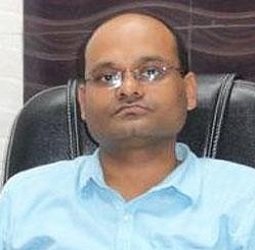Urologist in Delhi

List of Best Urologist in Delhi Book An Appointment With Best Urologist in Delhi


- Ureteral obstruction
- Urinary Tract Infection (UTI)
- Varicocele
- Male infertility
- Neurogenic bladder dysfunction
- View all
- Overactive bladder
- Pelvic organ prolapse
- Small bowel prolapse (Enterocele)
- Undescended testicle
- Bladder Cancer Surgery
- Benign prostatic hyperplasia
- Hydronephrosis
- Hypospadias
- Peyronie's disease
- Retroperitoneal fibrosis
- Stress incontinence
- Testicular Cancer Surgery
- Bladder Removal Surgery (Cystectomy)
- Kidney Transplant Surgery
- Ureteral Cancer Surgery
- Penile Cancer Surgery
- Testicular Hydrocele
- Urinary Incontinence
- Kidney Stone
- Bladder Stone
- Penile Implants & Prosthesis
- Kidney Cancer Surgery
- Prostate Cancer Surgery


Dr Rajat Arora
- 0 Feedback


Dr Vineet Malhotra
- 0 Feedback


Dr Anish Gupta
- 0 Feedback


Dr Vipin Tyagi
- 0 Feedback


Dr Shitij Bali
- 0 Feedback


Dr Anant Kumar
- 0 Feedback
When to see a urologist in Delhi?
Do you have questions about when to see a
urologist? Unfortunately, even today it is quite common for some people to
have it! This happens out of fear, shame, or even lack of
information. Thus, many do not consult with this important specialist.
With that, they end up being part of a sad
statistic. Including, often even fatal: that is to lose one’s life for
lack of preventive exams. These could establish a diagnosis capable of
preventing the emergence or evolution of many diseases.
So, do you want to know when to look for a urologist and
clarify your doubts? Then follow the answers below:
First of all, know that certain symptoms indicate when to
look for a urologist…
One thing is fact: doubts about when to look for the best
urologist in Delhi are common. Thus, the ideal is to look for this
specialist whenever another doctor indicates this need. Or even when the
patient is affected by certain symptoms.
Namely, it is worth saying that there are some silent
conditions. In other words, it is only possible to discover that there is
some kind of problem through a specific exam.
However, there are other symptoms that the patient should
never ignore, which indicate a urological problem.
So, the question is: when to look for a
urologist? Namely, check for the presence of symptoms such as:
- Frequent
urge to urinate; - Difficulty
urinating; - Urinary
incontinence; - Blood
in the urine; - Consistent
pain or burning when urinating - Severe
abdominal pain; - Discomfort
in the lower stomach, back or groin; - Dor
us testicles; - Difficulty
achieving or maintaining an erection; - Fertility
problems; - elevated
PSA; - Between
others.
But what is a urologist?
A urologist is a doctor who specializes in treating certain
health problems. They are related to the male and female urinary tract, as
well as the male reproductive organs.
Therefore, the physician with such a specialty can also
perform surgery on patients when necessary.
Therefore, among the organs that the urologist can treat, we
have:
- Kidney;
- Bladder;
- urethra;
- Uterus;
- Male
productive organs.
In addition, there are still urologists who work in a more
specific area. For example, from pediatric urology to even male
infertility and urological oncology. Namely, some other areas are:
- Neurourology:
Focused on urinary problems caused by nervous system conditions - Urological
oncology: intended for urinary tract cancer. This includes from the
kidneys, to the bladder, prostate and testicles; - Male
infertility: specialty focused on problems that prevent a man from
conceiving children; - Female
urology: directed to the conditions of the woman’s reproductive and
urinary system; - Pediatric
Urology: Focuses on urinary problems in children.
Urologist, what is it for? Treatments performed by a
urologist
Therefore, a urologist in Delhi is experienced in the
medical and surgical management of a variety of conditions. For example,
kidney, bladder and prostate cancer.
In addition, he is the right practitioner to treat
conditions such as kidney stones, incontinence, infection, sexual/erectile
dysfunction. As well as traumatic injuries to the urinary tract.
Even a professional urologist can even perform vasectomies
and kidney transplants.
Treatments performed by a urologist in children
Namely, urologists also treat the following conditions in
children:
- Hypospadias;
- Epispadias;
- undescended
testes; - Bladder
exstrophy; - Phimosis.
Diseases treated by a urologist in Delhi: what are they?
It is a fact that the mission of the best urologist in Delhi
is to take care of the urinary system, whether for men or women.
However, when it comes to the male audience, the
consultation needs to be more recurrent, given that there is a need to perform
urological exams. They are necessary to carry out the early diagnosis of
all possible diseases involving male reproductive organs.
Among the diseases treated by a urologist in Delhi, we can
mention:
- Prostate
problems; - Kidney
stone; - Urinary
infection; - Sexual
impotence; - Infertility;
- erectile
dysfunction; - premature
ejaculation; - Urinary
incontinence; - STIs;
- Tumors
in the region of the bladder, testes, adrenal glands, etc.
What are the main tests requested by the
urologist?
- Biopsy
In this test, a piece of tissue is obtained and sent to a
pathologist to determine if there is any cancer present. There are
prostate biopsies, for example, with anesthesia in the rectal region.
- Bloodtests
Several types of blood tests may be ordered to determine the
health of the urinary system. Some of the most commonly performed tests
are PSA, creatinine, BUN and testosterone. It is worth mentioning that the
PSA is a type of test that helps to detect prostate cancer.
In relation to testosterone, it is important in the
evaluation of male erectile dysfunction. Different types of blood tests
are performed when evaluating for infertility.
- Urine
analysis
Some of the most commonly performed tests are
urinalysis. Generally speaking, the patient collects all the urine
expelled for 24 hours in a container and the laboratory analyzes the urine for
abnormal levels of the many substances filtered from the bloodstream by the
kidneys.
- ultrasound
It is an imaging tool often used in the urology office to
examine the kidneys, bladder, prostate and testicles. It helps the
urologist diagnose many conditions such as tumors, cysts, stones, enlarged
kidneys and abnormal movements of the bladder and urethra.
- semen
analysis
Semen analyzes are done on men who are experiencing
fertility problems. They are also performed after each vasectomy to ensure
the procedure was successful.
- Xrays
Kidney, ureter and bladder radiography may be ordered to
assess the causes of abdominal pain and also the general structures and organs
of the urinary system.
- cystoscopy
Procedure for examining the patient’s bladder. When
performed in the office, a local anesthetic is used to numb the urethra.
What to expect during a visit to the urologist?
Namely, it is possible to see a urologist at any
age. But most of the time, urinary problems arise after the age of 50.
Therefore, from the age of 40 it is important to pay even
more special attention.
Even the procedure of a consultation with the best urologist
in Delhi is very easy. He will talk to you about your symptoms and
concerns.
Exams may include specific tests based on reported
symptoms. As a rule, it is checked that the kidneys are working well and
that the bladder is emptying properly.
Appropriate screening can also be performed to assess
whether or not there is prostate cancer, for example.
Depending on the cause of your symptoms, treatment may
include medication, surgery, or even specific exercises to strengthen your
muscles.
Now that you know which conditions indicate the need to go
to the urologist, how about taking care of yourself? Schedule a consultation with
Specialist Urologist in Delhi




